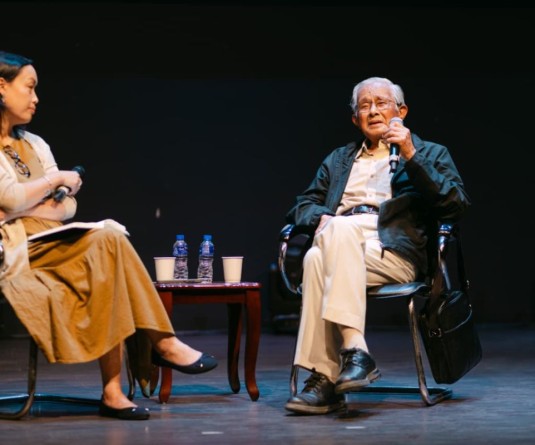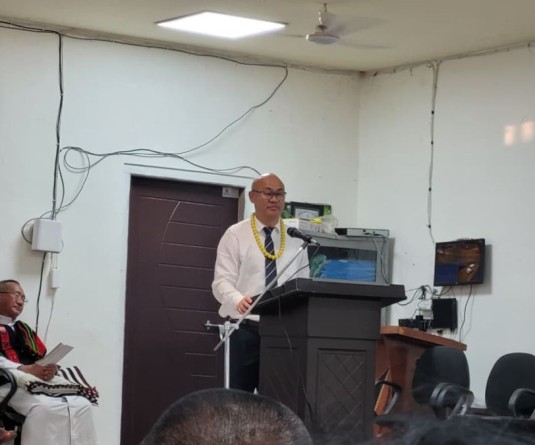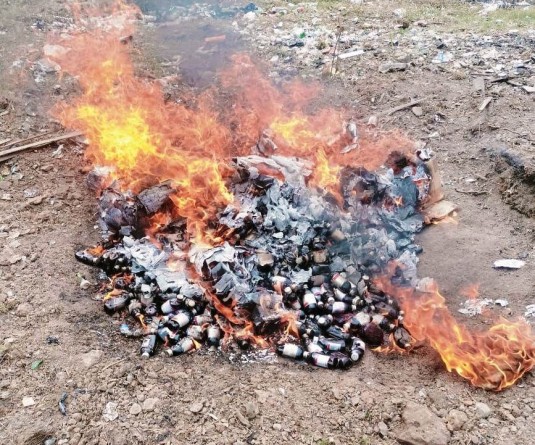
Morung Express News
Dimapur | October 12
Nagas have always taken pride in declaring themselves an egalitarian society; that women are not distinguished from men in so far as their status in society is concerned. Yet, the manner in which 33% reservation for women in the municipal and town elections is being opposed fails to support the Nagas’ claim. It is not surprising that in the recent state consultative meeting to discuss the Nagaland municipal elections and women reservation vis-à-vis Article 371(A), the issue took a back seat.
Hekani Jakhalu, Advocate and Director of YouthNet, in her paper made during the state consultative meeting, said municipal elections and women reservation need to be understood and viewed from a holistic standpoint. Reflecting on earlier statements made by different Naga organizations and individuals that women reservation is ‘totally going against Naga culture, customs and traditions;’ that it is a ‘murder of democracy;’ that ‘people need well-experienced women… there is no such woman in most of the places in Naga society”; Jakhalu said it is in stark contrast to claims by Naga men that their women have always been conferred equal status in the society. She said the process of women reservation should have happened naturally, in fact.
Jakhalu said there is need for gender equity in decision –making: necessary in order to level power imbalances between men and women. “Good governance and leadership does not discriminate between individuals on account of their gender, age or race. It’s taking time for some men and women (in Nagaland) to understand that sharing will be important for the next level of growth and development,” she said in her presentation. She added that the value of partnership will have to be experienced, understood and institutionalized. Only then people shall move in that democratic direction.
With regard to the Nagaland municipal and town elections, Jakhalu reminded that it is electoral voting and politics itself that have never been a part of Naga custom or traditions. However, she said, Nagas, like many other indigenous communities have managed to incorporate key elements and principles of traditional decision-making systems into modern electoral systems, thus maintaining important aspects of decision-making processes within more contemporary political structures. Her presentation said that today, electoral systems for selecting leadership and decision-making have replaced traditional processes of decision-making, a practice which was once considered culturally foreign and alien to the Naga people.
She contests, on this note, why the there is so much resentment in creating a just environment for women to join men in the decision making platform. “Article 371 (A) was provided to protect the Nagas and not to suppress and stifle Naga women,” she says, adding that the provision must not be used to hamper our progress or use it as a tool to create a battle between men and women. She further says Nagas should be cautious that Article 371(A) is not misinterpreted and misconstrued by some section of the people and individual to suit their own selfish needs and convenience.
Pointing out that historically and traditionally, Naga women have not been a part of the decision making process, but survival depended on the women’s decision-making. “The women’s role in decision-making is blocked by customs that give power to the men, which many justify as “tradition and culture”,” she says. As the result, women have little experience or skill on matters regarding the administration of the community. But she reasons that society’s norms and customs sometimes supersede the sense of justice and fairness of the community and, therefore, it is very important to subject each issue to a process of reflection.
Jakhalu concludes by saying that equitable representation of women in the decision making body is an urgent need. “No nation could stand proud if it discriminates against any of its citizens, and no society could claim to be part of the modern civilized world unless it treated its women on par with men,” she says. Jakhalu further adds that the State Assembly by adopting the 33% reservation for women proudly stands at par with some of the progressive States in the country and around the world.






